This research proposes a new methodology which responds to the gap between smart city technologies and their ability to inform processes of policy making. This protocol meets the world of urban governance at a time where cities are faced with vast and complex issues. It offers cities and neighborhoods a data-based methodological tool which enhances their ability to cope with such issues by creating a more transparent reality and a logical method with which to manage this reality. By utilizing a neighborhood digital twin within the context of participatory design thinking the developed protocol includes five milestones which facilitate joint decision making in urban welfare fields such as urban ageing. The neighborhood digital twin allows dynamic and continuous modelling of both spatial and social data and illustrates connections between the different type of data in order to expose trends and phenomena in the neighborhood. Each milestone is split into four components: conceptual framework, academic research, digital twin development and the workshop. The milestones follow a logical flow of discovery, interpretation, ideation and experimentation in an attempt to uncover the most significant issue of urban ageing in the neighborhood and create policies and plans as a response. Within the context of participatory research, the milestones took place within the framework of co-production, a relationship where local citizens, municipality workers and academia come together to plan and deliver solutions.
The methodology developed ranges between a generic protocol which can be adapted in a, and the implementation of our specific case study of urban ageing. From our case study we see significant contributions which the methodology offers. Firstly, the neighborhood digital twin as a tool which is the basis of an urban database and data-driven decision making. The neighborhood digital twin encompasses both institutional and civic data and as such tells policy makers and neighborhood activists a holistic un-biased evolving story of the neighborhood. It’s ability to effectively narrate the story of the neighborhood and expose trends through the visualization of data creates a shared language between stakeholders.
Finally, the idea of co-production where stakeholders both re-educate one another as well as create policy solutions which are at the forefront of innovation and research whilst also meeting the local needs and challenges.
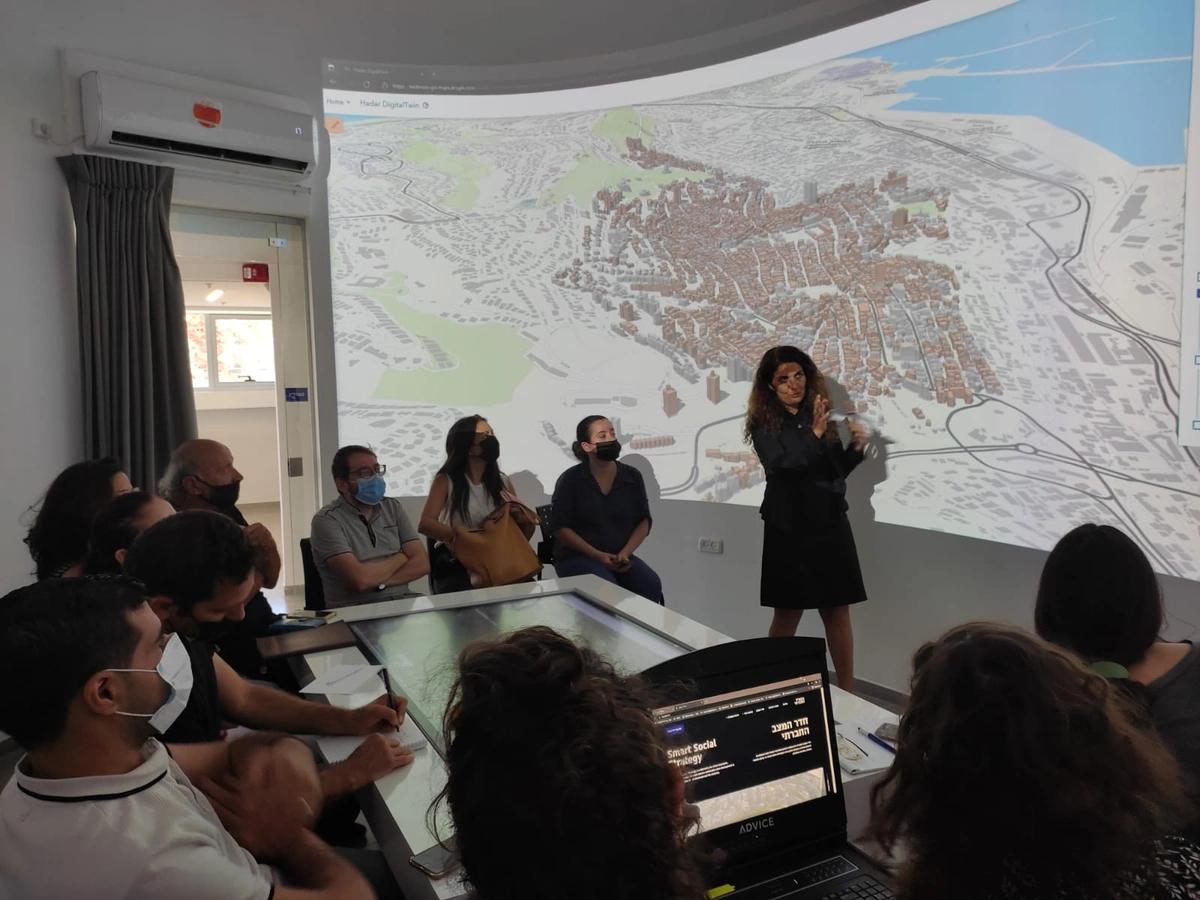
Participatory workshop in the lab
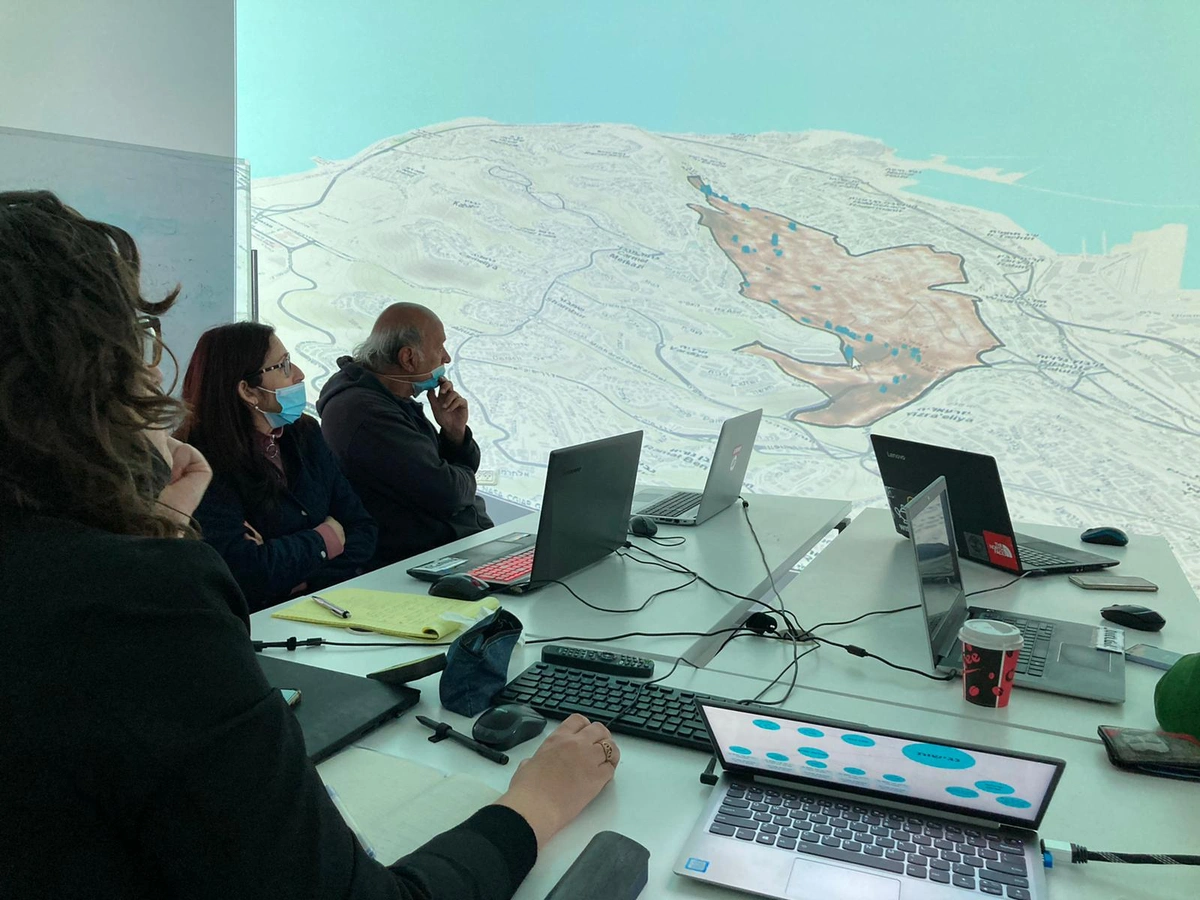
Participatory workshop in the lab
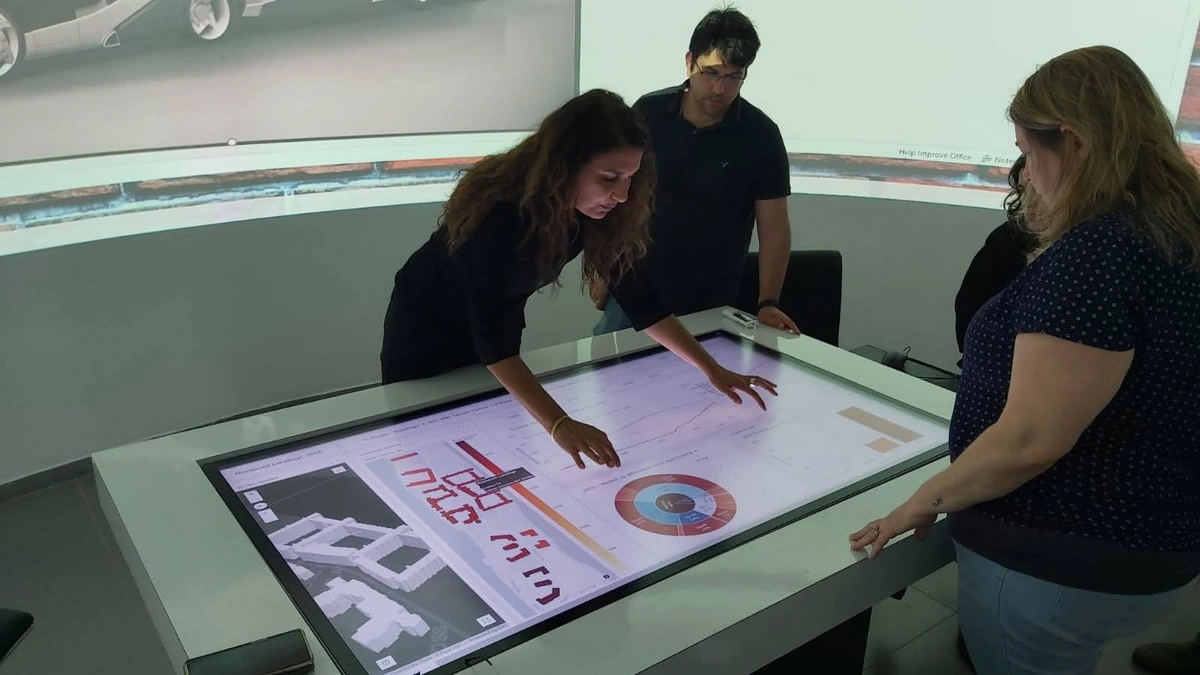
Smart Social Strategy Lab which supports visualization of social trends
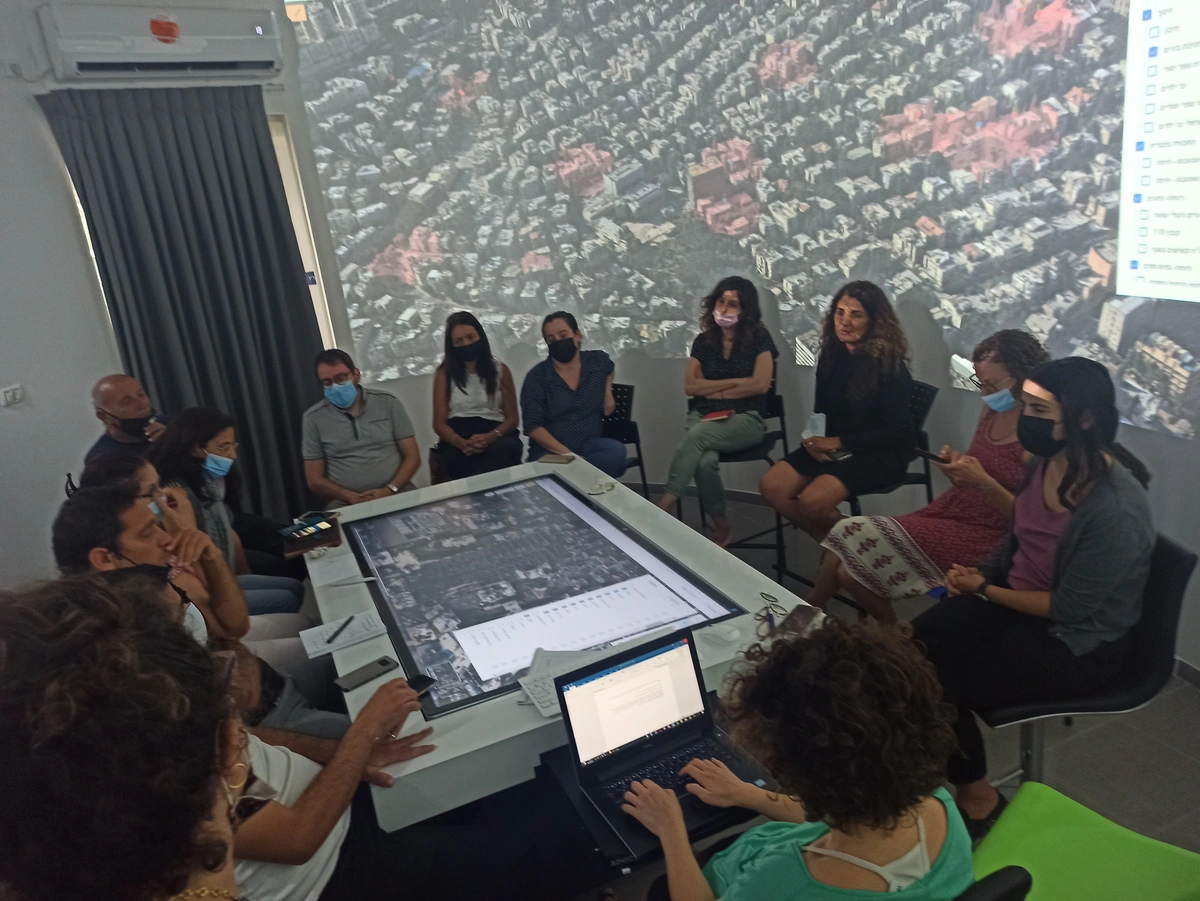
Participatory workshop in the lab
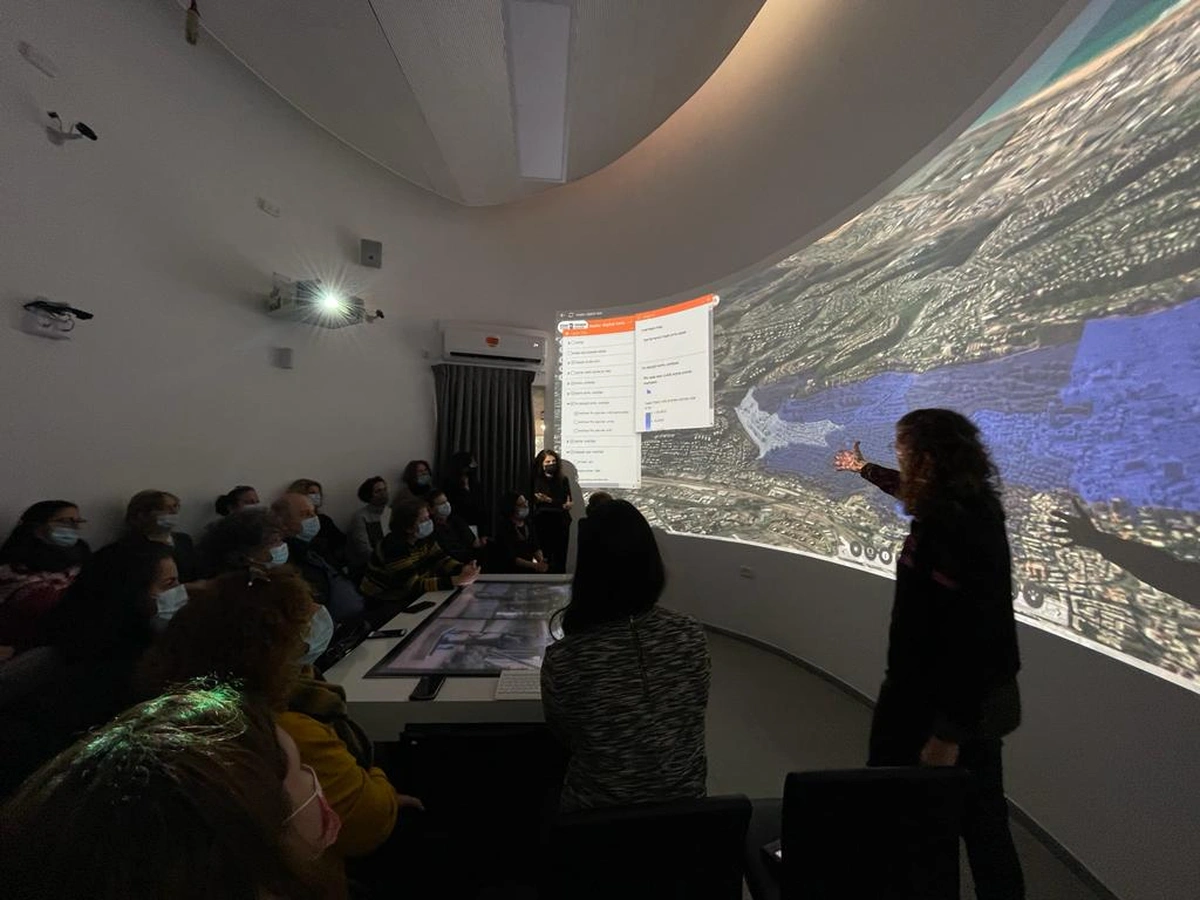
Presentations and lectures in the lab
The Smart Social Strategy Lab at Israel’s Institute of Technology—Technion develops policy and decision-making tools adequate for meeting social and economic challenges, in highly complex environments in Israel and abroad. Our unique interdisciplinary model brings together data scientists, geo-informatics specialists, urban planners, architects, artists, and social scientists to create social impact tools and protocols and participatory technologies for today and tomorrow. Team: Dr. Meirav Aharon Gutman - Academic Director, Architect Batel Yosef Ravid - R&D Director, Anne Axel - Urban Planning Masters Student, researching and developing methodology for implementing smart city tools into policy making, Dr. Raz Weiner - performance scholar, Dr. Eilat Maoz - anthropologist and ethnographer, specializing in crime and policing, Dr. Na’ama Hagiladi - Architect and urbanism researcher, Roni Mero (PhD candidate, Technion) - Art director, Engineer Shai Sussman, Geospatial-Data Scientist
